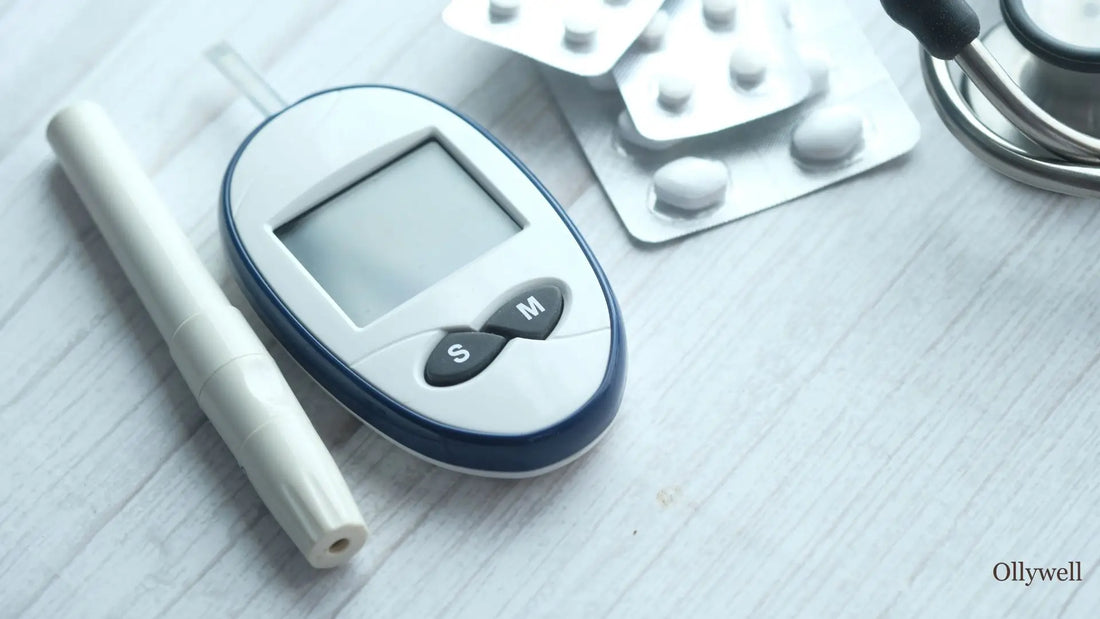Type 2 diabetes is a lifestyle disease that affects an increasing number of people worldwide. In search of natural alternatives to synthetic medications, researchers are turning to edible mushrooms. It turns out that some of them, such as Reishi and Cordyceps, can help regulate blood glucose levels.
Mushrooms as natural support in treating diabetes
Type 2 diabetes is a chronic metabolic disease characterized by elevated blood glucose levels. In addition to pharmacological treatments, which may have side effects, there is growing interest in alternatives that support the body naturally. One of the most promising solutions is edible mushrooms.
Many researchers indicate that mushrooms such as Reishi, Cordyceps, Pleurotus ostreatus (oyster mushroom), and Agaricus bisporus (button mushroom) have hypoglycemic effects, meaning they help lower blood glucose levels, which is crucial in treating type 2 diabetes.
How do mushrooms help regulate glucose levels?
Edible mushrooms contain bioactive components such as polysaccharides, terpenoids, proteins, and other metabolites that positively affect blood sugar regulation.
Mechanisms of mushroom action:
- Enhancing pancreatic cell activity: Mushrooms support the regeneration and function of pancreatic cells responsible for insulin production, allowing better glucose control.
- Inhibiting glucose absorption: Some mushrooms, through their properties, can limit glucose absorption in the intestines, preventing spikes in blood sugar levels after meals.
- Modulating insulin resistance: Mushrooms improve the body's sensitivity to insulin, which is key for people with type 2 diabetes, as this mechanism is often impaired in them.
Mushrooms as part of a diabetic's diet
Due to their low calorie content, low fat, and high fiber, vitamin, and mineral content, mushrooms are an excellent choice for the diet of people with diabetes. They have a low glycemic index, meaning they do not cause rapid increases in blood sugar levels after consumption.
Their regular consumption supports metabolic health, improves digestive system function and provides essential nutrients without the fear of excessively raising glucose levels.
Also read: Mistakes in using functional mushrooms – how to avoid them?
Therapeutic potential of mushrooms in treating diabetes
Research on the use of mushrooms in treating diabetes is still ongoing. Promising results have been obtained in preclinical studies and some clinical trials, suggesting that mushrooms can serve as an effective support in treating type 2 diabetes. Many of these mushrooms exhibit anti-inflammatory and antioxidant properties, which are crucial in managing the inflammation and oxidative stress associated with the disease.
However, to fully confirm their therapeutic effectiveness, further clinical trials are necessary to more precisely determine their role in the treatment and prevention of diabetes.
How to supplement functional mushrooms?
Supplementing with functional mushrooms, such as Hericium erinaceus (Lion’s Mane), Coriolus versicolor (Turkey Tail), and Cordyceps, may bring benefits in treating diabetes and other health issues. To achieve the best results, it is important to choose the right form of the supplement and the correct dosage.
The best choice is liquid extracts, which ensure rapid absorption of active ingredients and allow for precise dosing. With the liquid form, the body quickly absorbs valuable polysaccharides, terpenoids, and other bioactive compounds found in mushrooms.
At Ollywell, we offer liquid extracts of mushrooms that contain the highest quality, concentrated forms of Reishi and other functional mushrooms. Our extracts come from organic farming, and every stage of production is carefully monitored to ensure the highest quality and effectiveness of the supplement. This way, you can be sure you’re providing your body with natural support in the fight against diabetes and other conditions.
Source: Shamim et al., 2023, Exploring Edible Mushrooms for Diabetes, Review.
Also see: Ollywell – quality you can trust

